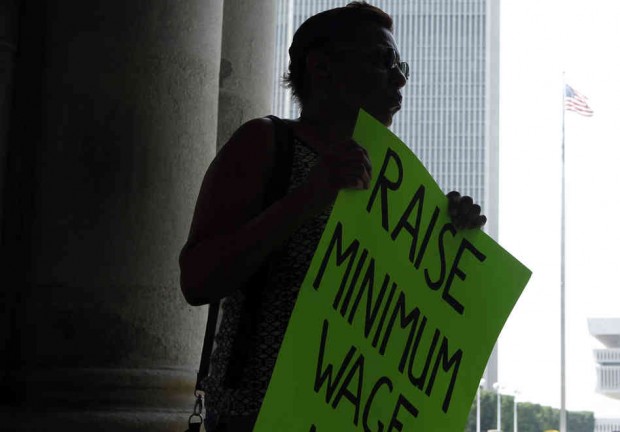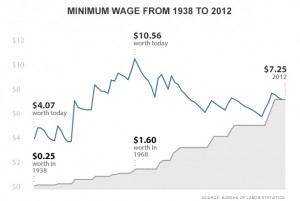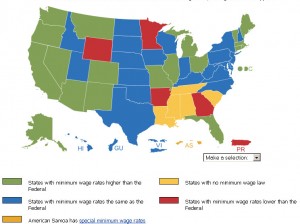Much of President Obama's State of the Union address last Tuesday centered on the theme of boosting America's dwindling middle class.
"It's our generation’s task,” he implored, "to reignite the true engine of America’s economic growth — a rising, thriving middle class.”
Among the more tangible policies mentioned that evening to further that objective, the president proposed raising the federal minimum wage - from $7.25 per hour to $9 by the end of 2015 - and provide for annual cost of living adjustments. (This would apply to most hourly jobs, with some exceptions, including some tip-based work.)
“Let’s declare that in the wealthiest nation on earth, no one who works full time should have to live in poverty,” he said. "Working folks shouldn't have to wait year after year for the minimum wage to go up, while CEO pay has never been higher. So here's an idea that Gov. Romney and I actually agreed on last year: Let's tie the minimum wage to the cost of living, so that it finally becomes a wage you can live on."
- When was the minimum wage first established, and how often does it go up?
- How do minimum wage laws differ by state?
- How does our minimum wage compare to rates in other wealthy nations?
- Audio and video resources
How much does a minimum wage worker actually make?

A full-time worker making the federal minimum wage (at $7.25/hour) earns about $14,500 a year, which is slightly above the federal poverty line ($11,490) for a person living alone. But for a single parent with one child, that same wage would be below the poverty line (which is $15,510 for a two-person household). In 2011, roughly 4 million Americans were making at or below the minimum wage, according to the Bureau of Labor Statistics. Over 60 percent of them were women and roughly half were under 25.


